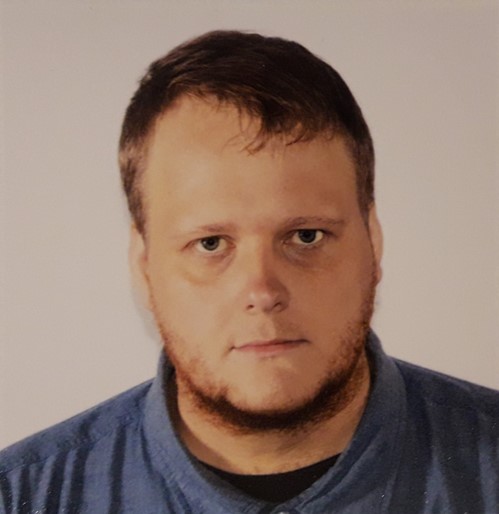Tomas Sitzmann
 Where do you call home? Can you describe it?
Where do you call home? Can you describe it?
I call home any place where I feel I belong. I was born and raised in Hohenau, a town in the southeast of Paraguay. This area of Paraguay has many other towns founded by immigrants from Europe, Asia, and South America that produce a nice diversity of people and cultures.
What are some of your personal interests and hobbies?
From time to time, I change hobbies; it always depends on my time and the space in my house. I had my phases of practicing different sports, playing music (although my neighbors thank me for not pursuing this hobby), drawing, cooking, playing chess, solving puzzles, and even gardening. However, my longest hobbies are books and movies. I love to read almost everything I find (I’m trying to start reading novels in Italian), and I also love watching movies from different decades and countries.
What is your biggest personal achievement so far?
I would say that I am proud that I have studied, worked, and made friends with people from different places around the world. Pushing my comfort zone put me in places where I was able (and I am able) to research topics I enjoy working with.
What is the title of your PhD project? Can you explain it to a non-academic?
“Designing novel peat-free organo-mineral fertilizer production from recyclables”. My project is looking for different organic materials, like different composts, that can be mixed with mineral fertilizers. The mixture between organic and mineral fertilizers is called “organo-mineral fertilizer”, and they are useful because they can improve the efficiency of the fertilizers. Currently, peat is a good organic material to create many of these organo-mineral fertilizers, and it is widely used in Europe; however, its extraction is not always the best alternative. Therefore, we are looking into alternatives to replacing peat to create high-quality organo-mineral fertilizers in the near future.
What drives your interest in bio-based fertilisers?
I see that bio-based fertilizers are a tool that, in theory, can answer many of the problems related to conventional mineral fertilization, like a relatively low use efficiency, risk of losses to water sources, and increasing costs. However, there is still a lot of work before saying that we can rely completely on bio-based fertilizers. Therefore, making my research in this field is exciting for the novelty and covers my interest in doing something useful for the environment and the people.
Describe your experience with the FertiCycle ITN so far?
A very recommendable experience! It has been exciting researching in a new country, meeting fellows across Europe, and participating in interesting debates.
Despite some limitations caused by the Covid, I consider myself lucky to have found a nice place to study, good advisors to work with, and the possibility of collaborating with companies outside academia.
What would you say are the benefits of the Marie Sklodowska-Curie Doctoral Fellowship?
I appreciate the collaborations across different institutions in Europe. It provides interesting networking opportunities for both academia and industries. There is high expertise among professors and researchers that provide wonderful opportunities to improve the quality of our research. At the same time, the collaboration with industries provides a relevant experience that shortens distances between research and farm necessities. This wide spectrum of collaborations gives us a wide range of opportunities for the future.
How has the experience traveling abroad for this program been for you?
It has been wonderful. Italy is my first professional experience in Europe; there are many things to learn and do. Although sometimes I was frustrated with bureaucracy differences between countries, once I settled down in Turin, I enjoyed the city and the surrounding areas.
